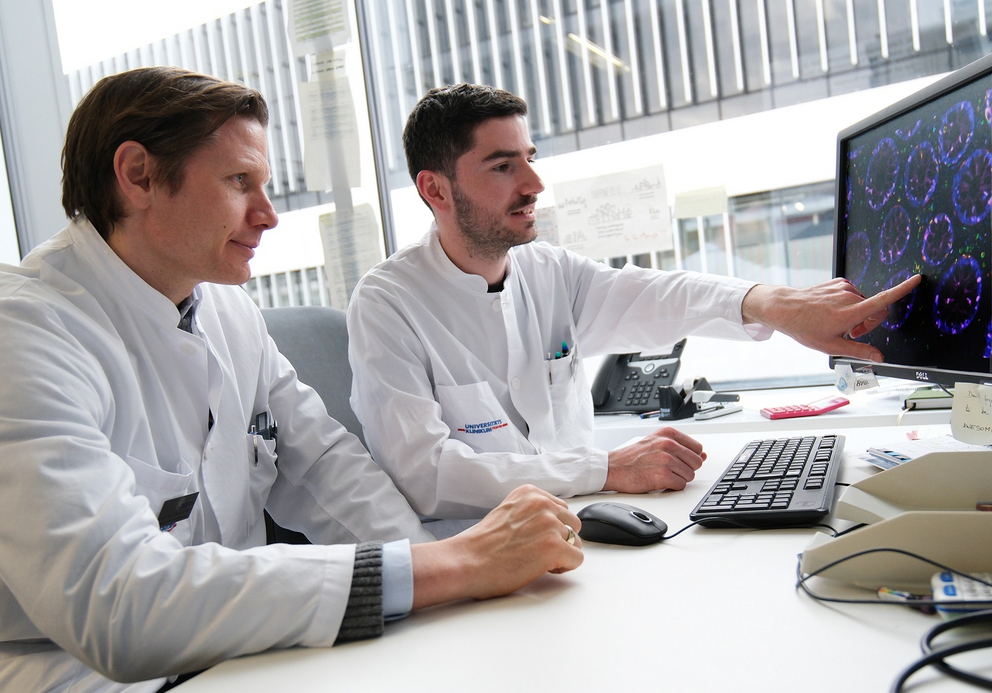Modern cancer immunotherapies are very effective, but they often have severe side effects that can lead to the discontinuation of treatment. Researchers at the University Medical Center Freiburg have now shown that a special light therapy for blood cells can significantly reduce these side effects without impairing tumour defence. Extracorporeal photopheresis (ECP) is the name given to the specific process that alleviates the inflammation caused by immunotherapy. They have also discovered the mechanism behind this. They showed that the body's own molecule adiponectin, known from fat metabolism, regulates inflammation. The results were published on 10 February 2025 in the journal Cancer Cell. This work is the result of an intensive collaboration between many scientists from Freiburg, in particular the Departments of Internal Medicine I and II at the University Medical Center Freiburg, and researchers from Baltimore, USA.






